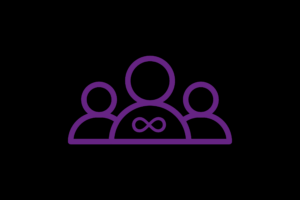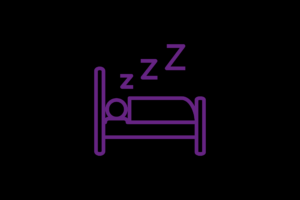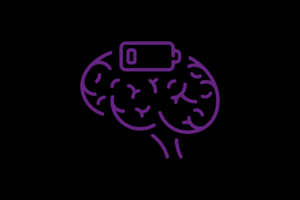Leaning into your strengths as an autistic person
Being autistic comes with both strengths and struggles. (And I should know: as an autistic teacher myself, I have plenty of both!) Unfortunately, so many autistic young people are made to feel like it’s their struggles that stand out. Which, in my opinion, is totally unfair.
Because take it from me, your strengths absolutely matter. They can help you enormously – in fact, knowing and using your strengths is useful for a load of things: your self-esteem, future career opportunities, and even handling anxiety too!
So here are a few tips from me about leaning into your strengths as an autistic young person…
1. First off, recognise that you definitely have strengths.
Everyone has strengths. And yes, this includes young people. Yes, it includes people with learning disabilities. Yes, it includes disabled people.
But the sad thing is, a number of young people I’ve worked with have honestly thought they’re terrible at everything – not because they actually are, but because that’s how the people around them have made them feel. (Whether it’s people at school, or the wider world in general, and sadly sometimes even family members.)
If you’re a human, you have strengths. That’s the rule. And your strengths are valuable, even if other people say otherwise.
2. Your strengths don’t have to be like everyone else’s.
When I was a teacher, it always annoyed me that even though different children were good at different things, the adults acted like it was only English and maths that mattered.
Don’t get me wrong, English and maths are great subjects to be good at, but the other subjects matter too. And it was sad that I knew some brilliant artists, athletes, scientists, historians, musicians and geographers, who honestly thought they were “stupid” because they struggled with English and maths. (Oh, and skills that have nothing to do with school are just as important! Just because you can’t get a grade for it doesn’t mean it doesn’t matter.)
Autistic people often have strengths and interests that are different to everyone else’s. And the world is often changed by people like that.
3. Learn what you’re good at, and do what you’re good at.
One of the best things I’ve done as an adult was stop focusing on my struggles and start learning about my strengths. I’m a good writer, I play chess brilliantly, I’m good at helping young people, and these days I can solve a Rubik’s cube in under 20 seconds.
And the more I’ve found opportunities to do these things, the happier I’ve become. (And the more I’ve had other people seeing me do the things I’m good at, the more confident and less anxious I’ve become. But obviously do these things for yourself, not for other people’s approval.)
Work out what you’re good at, and what you love. And after that, find the places in the world where you get to do what you’re good at, and what you love.
I hope this advice helps, and all the very best to you. The world needs autistic people, and it needs our strengths. Including yours.
Writing led by Chris Bonnello (Autistic Not Weird)- autistic advocate, speaker, author and former teacher | Website | Facebook | YouTube
Are you a warrior or a mage?
Sometimes it’s easy to get bogged down by the struggles of being autistic, but just like everyone else we also have strengths! Finding your strengths might be a trial and error process, or it might be super obvious to you and everyone around you!
Maybe you are really good at making stories and universes in your head, or maybe you really like and are good with numbers or facts. Maybe music feels like it flows through your body, or you love talking to people and find it easy to care for others or see their perspectives. Maybe the pets and animals around you really find you comforting, or you are really good at football. There are MANY different things you could be good at, and an infinite combo of how you share and explore that.
Sometimes it might feel like you aren’t good at anything, or that you don’t have strengths. If it feels like that, try looking at it from this perspective:
If you have ever played a RPG video game, some characters, like mages, are really good at magic! They can cast spells and possibly heal others. But they probably have really low health. However a warrior can chop down a tree in no time because of their strength, but will have a really hard time trying to solve a puzzle, and might not be able to do any spells. Asking a wizard why they can’t do what the warrior does is kinda silly; they are different and have different skills!
There’s also a difference in level. If you are a level one mage you can probably do one or two spells, so comparing yourself to a level 50 mage, who has TONS of super powerful spells will probably make you feel like you can’t do anything, which isn’t true.
Everyone isn’t good at everything, so if it seems like someone is, then there might be something you are overlooking. But everyone has something they can do, or at least that makes them happy.
Not every strength is good for every situation, (just like a warrior and a mage will be better in different situations) and that’s okay. Learning both what your strengths are, and the ones of those around you, means you can work together as a team and help each other out!



